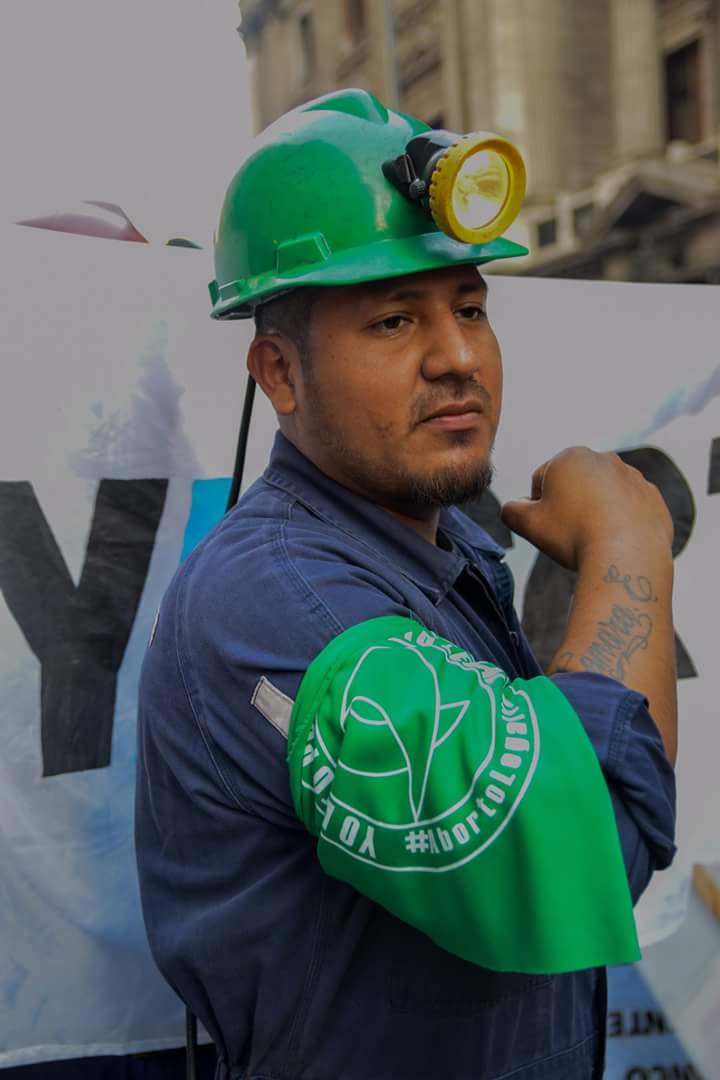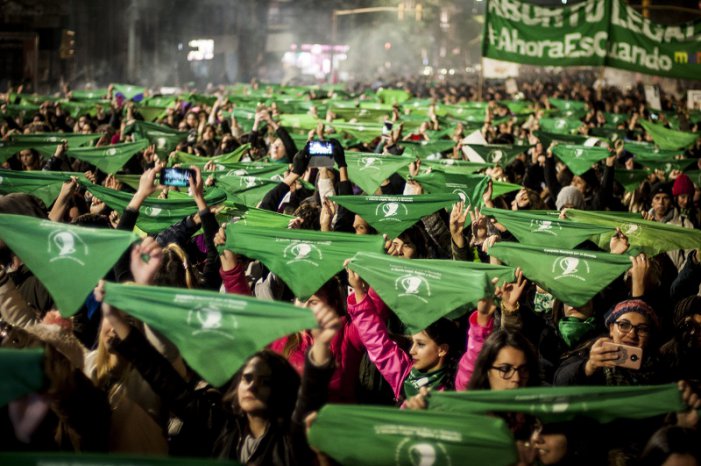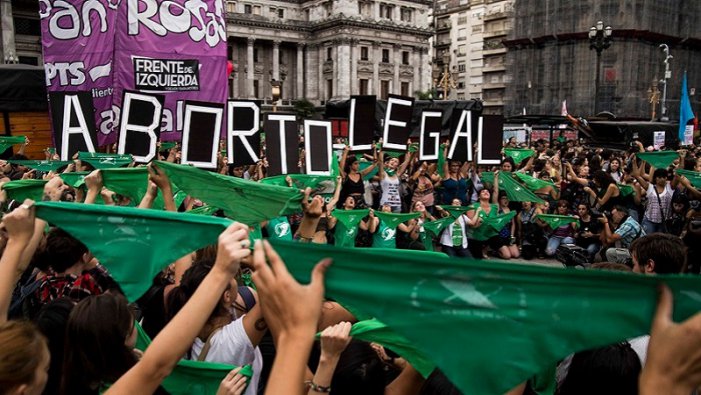Just a few weeks ago, Ireland became the most recent country to take steps towards legalizing abortion. Now, halfway across the world, a similar step may be taken in Argentina.
The past months have been characterized by green bandanas — symbolizing the right to an abortion hanging on backpacks, as wristbands, on doors to offices and being held by thousands in mobilizations.
Argentina would become just the second country in Latin America to legalize abortion despite years of “progressive” Pink Tide governments — including women presidents in Brazil, Chile and Argentina who did not legalize abortion. Now, there are steps being taken to legalize abortion in the right-wing government of Mauricio Macri. On Wednesday, one of the Houses of Congress will debate and vote legalization of abortion. As of now, it seems that pro-choice forces are only four votes shy, with 25 legislators who are undecided. If this passes the House, it will go on to the Senate.
This comes after years of mobilizations for women’s rights in Argentina. The #NiUnaMenos (not one more death) mobilizations of Argentina brought hundreds of thousands to the streets against femicide, strengthening the women’s movement. Since then, International Women’s Day mobilizations in Argentina have been some of the largest with some partial work stoppages in factories such as PespsiCo (which was later the site for massive workers mobilizations), among teachers and among some airport workers.
Since then, the demand for an abortion has been taken up by massive numbers of people across Argentina, with more than 60% of people in support. Some sectors of the working class are also expressing solidarity with this movement. The teachers unions, in particular, are calling on teachers to mobilize on Wednesday. Fired workers from Hospital Posadas, as well as miners from Rio Turbio (who recently got their jobs back) expressed solidarity with the movement for the right to an abortion.

The legalization of abortion in Argentina would be no small feat. The Catholic church has enormous political and social weight and is a central political actor fighting against a woman’s right to choose. After all, the current pope is from Argentina. While under Cristina Fernandez de Kirchner some democratic rights were granted to oppressed people — like the right to same-sex marriage and the right to have your gender identity recognized, Kirchner has repeatedly spoken against the right to an abortion — affirming an alliance with the church. In the meantime, hundreds of women die every year in Argentina from unsafe and clandestine abortions, and more than 50,000 are hospitalized. Most of these women under 24 years old.
In this sense, the right to abortion has everything to do with the question of class. Women all over Argentina seek out abortions but young and working-class women die in the process, while wealthy women pay enough to get a safer abortion in Argentina.
This year has included several large mobilizations for the right to an abortion, including half a million people in the streets on March 8th, and thousands in the street last June 4th. The pro-life sector has also organized mobilizations against abortion rights in the past months. Likewise, the Catholic Church is engaging in heavy lobbying of the government. In fact, several members of Congress even received death threats.
This week, ahead of the vote, hundreds of high schoolers have taken militant actions and occupied their schools to demand the right to an abortion.

A student assembly that voted an occupation for the right to an abortion.
Pan y Rosas, a socialist women’s group in Argentina has been participating in these occupations as well as the mobilizations. They argue for a strategy for women’s rights tied to workplaces, universities and high schools, pushing for labor unions to call for work stoppages and organize contingents to the march. A leader of Pan y Rosas, Andrea D’Atri says, “We demand that the labor unions and student unions organize contingents to go to the march, ensuring that there are hundreds of thousands in the streets…Because no government has ever handed us anything. Because we do not beg for our rights, we win them in the struggle. Because even though it is Congress that will vote for our right to an abortion, it will be the result of our strength in the streets.”
Wednesday, while Congress votes on the right to an abortion, will be marked by a full day of mobilizations and are expected to be massive. There are a sector of legislators who “remain undecided” — and it is these undecided members of Congress who will decide if Argentina will advance in legalizing abortion. While Congress votes, the demonstrations in the streets will determine the balance of power. A massive show of working class unity with the women’s’ movement could finally make abortion legal, after decades of anti-choice and anti-woman policies in Argentina.













